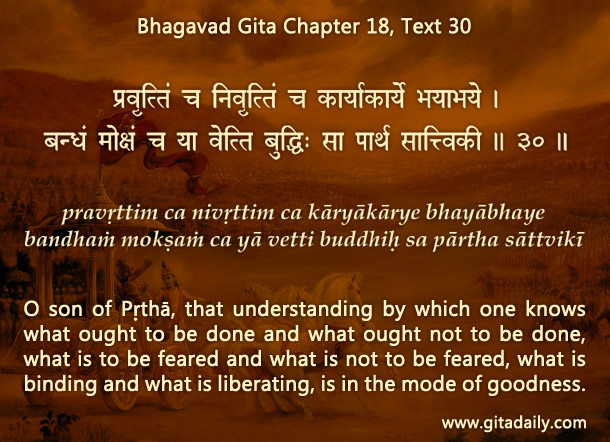Intelligence vs intellect
Intelligence and intellect are sometimes considered synonyms. However, they differ significantly. Before going into their specific meanings, let’s consider the underlying concepts.
We all have a certain capacity to process information, including the capacity to ponder abstract concepts through reasoning. And we all have a certain capacity to make decisions wisely, including the capacity to learn and apply skills and values. Information-processing capacity and decision-making capacity are not identical. Consider smoking, for example. Some people can memorize, analyze and verbalize many facts about the harms of smoking, yet they struggle to let go of cigarettes. Conversely, others may not remember even a single medical fact about the harms of smoking, yet they desist from it without much struggle.
Interestingly, the Bhagavad-gita states that good intelligence is characterized by sound decision-making ability (18.30). Accordingly, we may equate decision-making capacity with intelligence and thereafter equate information-processing capacity with intellect. Clearly, intelligence is more essential and consequential than intellect; even if we can’t process a lot of information, we all . And thankfully, intelligence is more transformable too.
Based on our past karma, we all are born with a certain level of intellect. Intellect can be measured through parameters such as the intelligence quotient (IQ). (Despite its name, IQ measures intellect, not intelligence; because intelligence is more multi-faceted than IQ, other forms of intelligence have been postulated such as emotional intelligence, measured through EQ). While we can raise our IQ to some extent by training and practice, we can’t improve it dramatically.
Nonetheless, we all can improve our intelligence. How? By studying wisdom-texts such as the Bhagavad-gita and thereby understanding the purpose of life and the principles of living. The more we become purpose-driven and principle-centered, the more we can neglect distractions and take sound decisions.
One-sentence summary:
We may or may not be intellectual, but we all can become intelligent.
Think it over:
- What is the difference between intelligence and intellect?
- How is intelligence more transformable than intellect?
- How can studying the Gita improve our intelligence?
***
18.30: O son of Prutha, that understanding by which one knows what ought to be done and what ought not to be done, what is to be feared and what is not to be feared, what is binding and what is liberating, is in the mode of goodness.
To know more about this verse, please click on the image
Explanation of article:

Podcast:


Leave A Comment